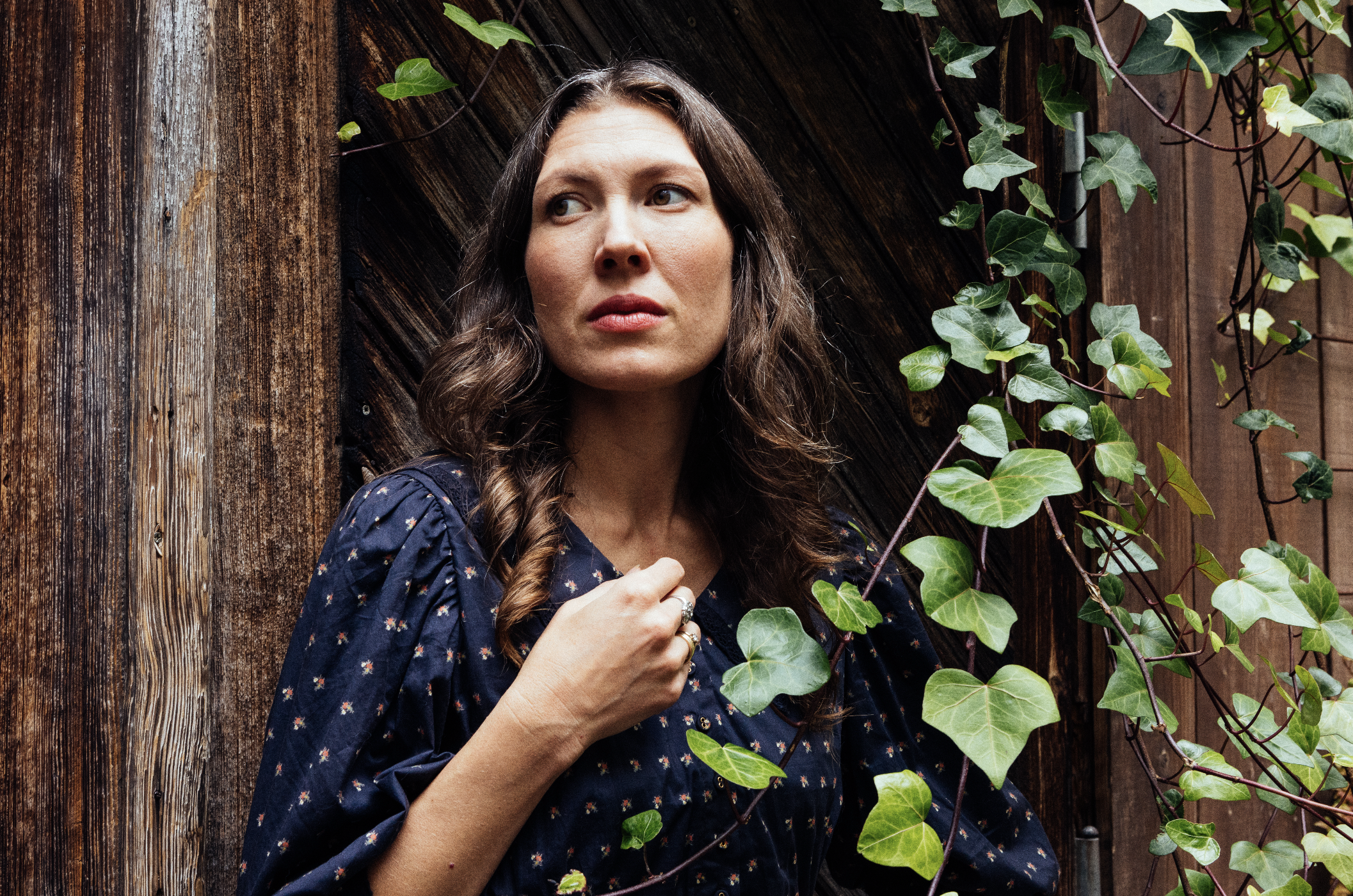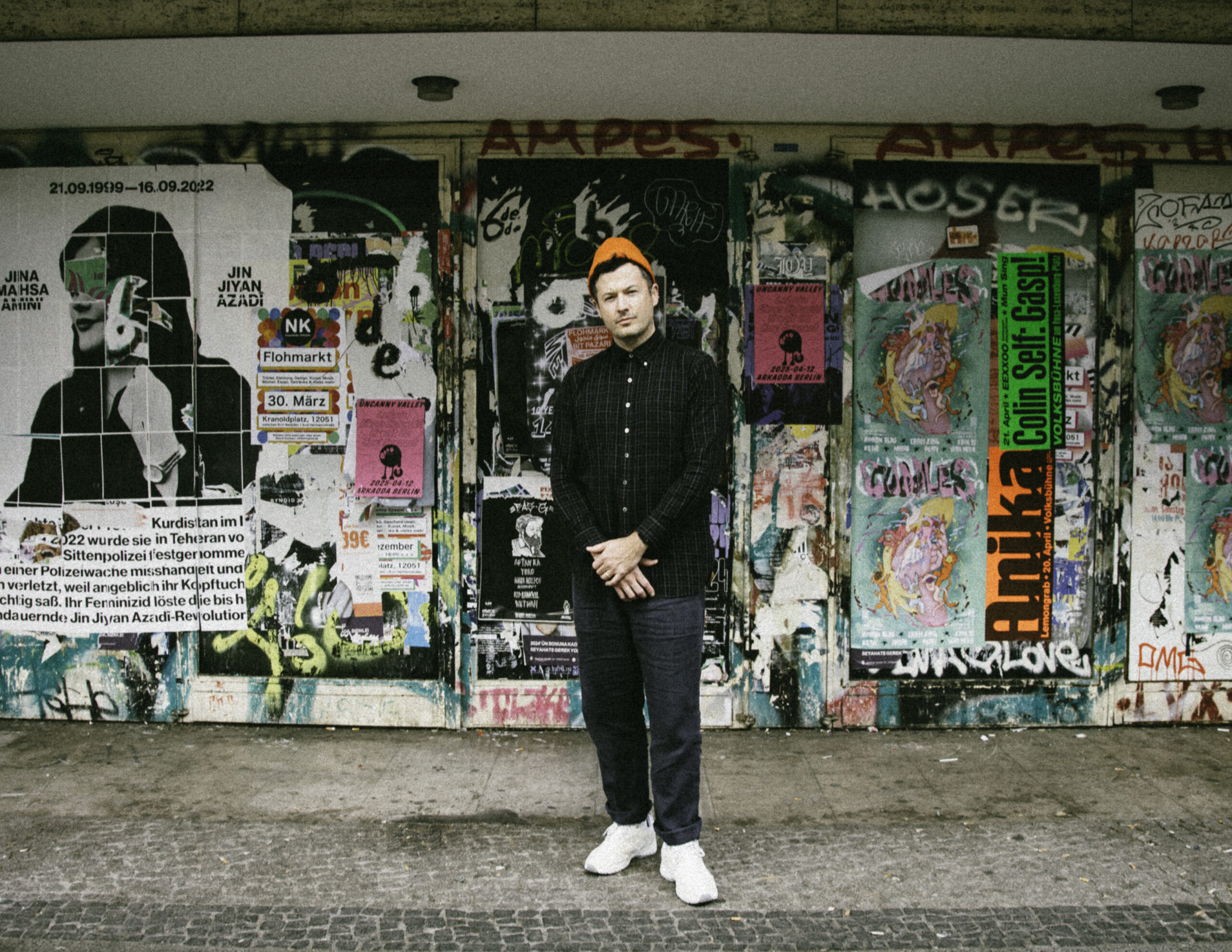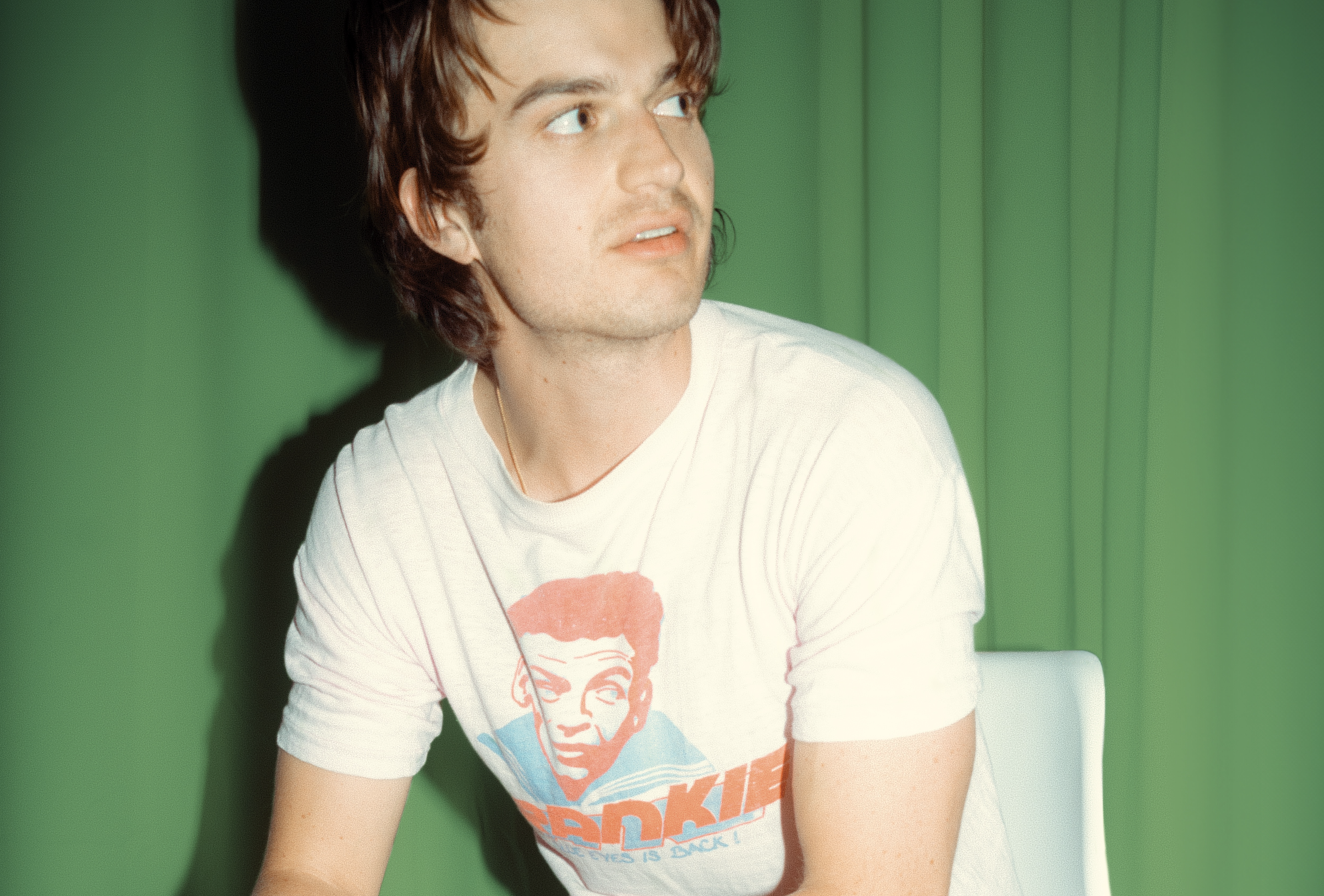Foto-© Hella Wittenberg
Vier Jahre sind vergangen seit der Veröffentlichung von Alela Dianes letztem Studioalbum. Mit Looking Glass verwandelt die in Portland lebende Musikerin aufs neue Momente aus ihrem Leben in Songs, mit denen wir alle uns identifizieren können.
Looking Glass reflektiert, wie uns die Vergangenheit als dauerhaftes Fundament überallhin begleitet, erkundet ihren Einfluss auf unsere Identität und versucht zu verstehen in welchen Räumen wir uns in schwierigen Zeiten zugehörig fühlen und Zuflucht suchen…
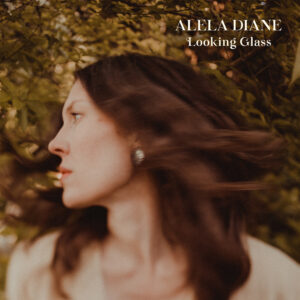 Alela, it’s wonderful meeting you. Let’s dive right in, shall we? You’ve had your release day yesterday. I wonder where you’re finding yourself, I mean, what do you do on a release day?
Alela, it’s wonderful meeting you. Let’s dive right in, shall we? You’ve had your release day yesterday. I wonder where you’re finding yourself, I mean, what do you do on a release day?
It always feels a little surreal. I’ve been sitting on the record for over a year, so I’m very familiar with what I made. But sharing it always feels exciting and nerve wracking. You just don’t know, because other people are experiencing it, but I was just sitting in my hotel in Berlin. You get little glimpses of people sharing it on social media, but that’s also just so abstract.
Do you think anything could happen that would change how you feel about the piece?
No, I mean it’s a piece of work that I’m proud of and I don’t think that the reception or something would impact how I feel about it. It’s also just so hard to say what the reception is, especially these days. Press is a lot more limited than it used to be, especially for an artist on my level. You kind of just feel like you’re shouting into the void, you know? I have a pretty dedicated sweet audience who are discovering it, but I don’t know.
How do the songs feel to you now that they’re held on a record as one completed piece?
It always feels really wonderful to get the vinyl record in hand. I feel like once that happens for me I realise that this thing is done and it feels like a complete piece of work and there’s something satisfying about that physical form of a record. That’s the moment that I feel like, ok, this record is done. Until you get that physical copy in hand it still feels abstract.

What does the title mean to you, Looking Glass?
I chose that title for a number of reasons actually. Looking Glass means mirror reflection – that was one reason. But I’m also referring to the Lewis Carroll meaning, which is that things are not what they seem, or sort of a metaphor for when things are unexpected or turned upside down. I was thinking of the last few years, where everything that we’ve come to think of as reliable was taken away. All of our systems and the things that we knew to be true. The rug was pulled out from everybody in the world. And then I’m also using the term, looking glass, to describe the way we’re all connected to each other and disconnected to each other, through computer screens and phones, and we’re all sort of looking through a one way mirror at each other’s lifes. There’s one song on the record called Strawberry Moon. There’s a line in the bridge of this song, ‘now you’re a flicker in the looking glass’, and that refers to people in my life that I used to be close with. You see their profile online and you discover that they’ve died or that their life has just descended into something unrecognisable through addiction or something like that. That song is about the people that get away and it became a song about multiple people in my life. It maybe started about one person and it became about someone else and so it was connected to a lot of different stories that I had heard about. You’re looking through the looking glass to kind of glean that information and it impacts you in this way, because it’s somebody that you used to love. That was a long winded answer, but that title kind of encompassed a lot of different feelings that were related to the record.
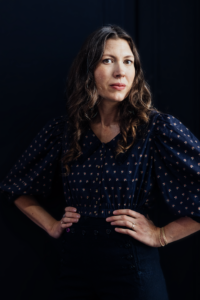 A long answer and such a beautiful one, thank you for sharing. It sounds like a very multi layered reason for why you chose the title. And to imagine that whoever listens to the songs and reflects on their own stories adds yet another mirror into the mix… You’ve picked up on the unrooted times we’ve all been through. I understood that you’ve also sold your house and bought a Victorian fixer upper and had your kids home from school. I wonder if these moments of transformation inspire you in general? I mean you could’ve well and truly waited for calmer days to record an album..
A long answer and such a beautiful one, thank you for sharing. It sounds like a very multi layered reason for why you chose the title. And to imagine that whoever listens to the songs and reflects on their own stories adds yet another mirror into the mix… You’ve picked up on the unrooted times we’ve all been through. I understood that you’ve also sold your house and bought a Victorian fixer upper and had your kids home from school. I wonder if these moments of transformation inspire you in general? I mean you could’ve well and truly waited for calmer days to record an album..
Yeah you’re right. Well, we moved right after I completed the record. I guess we were still doing a couple of sessions right after we moved. So this collection of songs I feel like was really bookended by that definitive change in my life. I wrote all the songs at my old house and then it just so happened that I had booked these studio days and then we found the crazy Victorian house that we wanted to buy. And so it was like, oh no, we have to sell our house. It just so happened that it was all happening at once and so we put our house on the market and I was signing the papers in the morning that I went into the studio. I felt really raw and emotional and like these big changes were happening. But I think that impacted the performances of the songs in a really positive way. I was really just giving it my all and I felt all of the feelings of these songs. It was kind of a beautiful thing to have it all happen at once that way, and it means that this collection of songs really is the end of a chapter for me and the start of something new which is whatever comes.
Wow, and a proper resilience check-in at the same time. It sounds really beautiful for you to hold this piece that is so descriptive of that chapter of your life. Do you still create when you slow down? How is it different then?
It is so disruptive to move. Everything in your life has to be unpacked and it’s been over a year. We’re still not fully settled and my music studio is not done yet either. We managed to get the movers to put a piano up on the top floor where my studio will be, which was an absolute miracle that they got it up the staircase. I’m waiting for the floors to be done and then I’ll be able to move into that physical space and write again. Thankfully I had already recorded a record, so there was no pressure to make anything new yet.
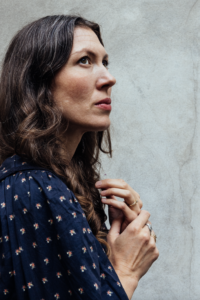 The physical space is something you often reflect on. With home, and whatever home can mean in all its senses, how does a physical space impact your creations?
The physical space is something you often reflect on. With home, and whatever home can mean in all its senses, how does a physical space impact your creations?
For me it’s always been very important. I feel the most grounded when I’m settled and when I’m at home. Even if I’m writing a song and I’m very far away from home I’m often tapping into that feeling of familiarity and memories that feel like home. At my old house I had built out a little backyard studio and it was so wonderful to have a space that was my own to go and work and it was just wonderful to write all these songs in my little space. It was the first time that I had had a dedicated studio and I know now how important that is and I’m really looking forward to creating that space again.
You created Dream A River when you were revisiting your childhood home. After, what was it, 20 years?
Almost 20 years.. That was a really surreal experience. I had seen that the house was for sale online and I was down visiting my hometown so I couldn’t help but go and look at the house. When I showed up, the door was wide open but no one was there so I went inside. It was my home all through my childhood and I felt at home there even though my family hadn’t been there for almost 20 years. I had my daughter with me and she was about six at the time and we just went in and crept around the house. It was a surreal and beautiful experience to visit that space again and the whole time I was terrified that someone was gonna show up and be like what are you doing in my house? After that experience I wrote Dream A River, reflecting on what it meant to me to revisit that physical space and do so under kind of trespassing circumstances.
Whoever would’ve bumped into you, you would have had a pretty good story to tell… Speaking of little people – you wrote Camelia about the volatility of life. How difficult is it for you to share these really intimate experiences, or to share songs you wrote from a really personal narrative?
I think for me the songs are a way of putting an experience or a hard thing that has happened. It’s a place for me to put that so that I don’t have to carry it around with me anymore and I can revisit the memory through the song or when I sing the song. On one hand it is very vulnerable, but as a songwriter that’s what I’ve always done. I’m always writing about the hard thing or something that was traumatising. For me, putting these experiences into songs is my way of moving through it so that I’m not just experiencing it over and over or thinking about it all the time. It’s a process for me and to share this with other people may feel bold, but it can also be helpful. Everybody has difficult experiences in life and not everyone knows how to articulate that in a feeling or a song. I think that intense songs often become a way for others to feel things and to feel feelings that maybe they didn’t realise they needed to process. I feel like a big part of my work is just helping people to connect to that raw kind of emotional place that’s so important to visit from time to time.
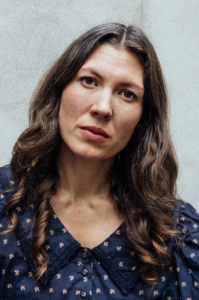 What a gift to have to be able to put these emotions into song and into words. Do you feel that these particularly raw songs are received differently when you perform them? Can you feel like the audience reacts differently?
What a gift to have to be able to put these emotions into song and into words. Do you feel that these particularly raw songs are received differently when you perform them? Can you feel like the audience reacts differently?
I can’t tell you how many times a grown man comes up after a concert and says, oh my gosh, you made me cry during that song. And I feel like that’s really important, to make grown men cry. They don’t often do that. So that’s a real accomplishment you know.
Yeah, absolutely. That’s really special. It’s been a few years since you’ve released The Pirate’s Gospel. How do you feel like you’ve changed or evolved as an artist? Is that even a question you can answer?
I think it’s my skillset that has improved and changed, which has allowed my songwriting to evolve. I mean, when I recorded The Pirate’s Gospel I had been playing guitar for two years or something. I was just such a new guitar player and such a new songwriter and I think over the years and with each record I’ve learned something about the process of recording and trying to get a record to sound like how I want it to sound. I think with experience learned how to articulate a vision more and to be more discerning and intentional about how I record a record and who I choose to work with and all of that. And I think that my sound has continued to evolve over the years. I was just so young when I started out and I was not a child who took music lessons. I didn’t know how to read music. I was self-taught and I still am for the most part. I think something else that has impacted my songwriting is that I use the piano now also as a tool. I’ve taken a few piano lessons, but I’m by no means a great piano player. It’s a really useful tool to be able to write on piano and on guitar, and I think that has informed the way I write as well in more recent years.
How is that different?
Piano has a different personality than guitar does. Sometimes I’ll start a song on guitar and then I try playing the chords on the piano to see how that impacts where the melody wants to go. There are certain songs that just feel more at home on piano or that want to be a guitar song so.
You mentioned being self-taught. I wonder how growing up in a musical household, with your parents playing a lot of music, shaped the artist you are?
I probably wouldn’t have come to music so naturally had I not grown up in a musical family. I just saw that music was a part of life with my parents were often playing songs in the kitchen around the table. When I came to music on my own at 19 and started writing songs, it felt like a very familiar place. And as a kid I was very exposed to music and I had every opportunity to try. I think I picked up the guitar a little bit in high school and my dad showed me a couple of chords, but it wasn’t until I moved away from home that I really dove in more on my own.
What is your sonic vision as an artist? Do you think in lyrics first; do you start with a melody?
I think it depends, song by song. Sometimes I will write a mostly fully formed sheet of lyrics and other times I’ll just write a couple of lines and start there and then I’ll find a melody and then the words start pouring out once I find a melody. It happens in a lot of different ways and each song is its own journey.

Howling Wind was the first release of the album. What made you choose this song?
I think I chose that song because it felt timely for the state of the world right now. We’ve just really been through a lot these past few years and that song touches on a lot of that feeling. Things feeling out of control with the pandemic, with war, with racial injustice in the US, with climate change. All those things are in that song and it felt important to share that one sooner rather than later because of the state of the world.
It’s not the easiest thing this human experience, is it?
No it’s really not. It’s a lot to take in.
There’s a really earthy feel to your music and you’re bringing nature to the listener wherever they are. Is nature somewhat a forever inspiration?
It’s a part of where I come from and who I am. So rather than it being a conscious decision to share that, it is where I gather my inspiration. Growing up in Northern California and Nevada city, it’s just deeply rooted in who I am. A lot of my metaphors and lyrics are definitely drawn from the natural world.
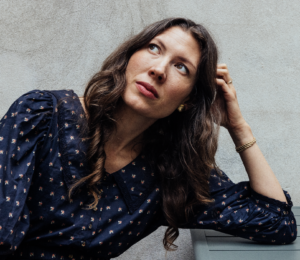 Paloma being one of those songs I believe. Can you share a bit of the experience that made you write the song?
Paloma being one of those songs I believe. Can you share a bit of the experience that made you write the song?
I wrote Paloma when I was down in Mexico. There was a really violent thunderstorm that knocked out the power for three or four days. In Mexico things are a bit more volatile, the power, the water, everything is just even more volatile than it is in the US or in the UK. Things are knocked out and it takes a while for it to be fixed again. It really showcases the volatility of these systems that we rely on. It also had me thinking about climate change and these extreme weather events that are happening and nothing really seems surprising anymore, you know? We hear about all these floods and hurricanes and earthquakes and these horrifying things that are happening all around the world because of climate change. And we’re not in the driver’s seat; nature gets the last word, and that’s what that song is about. The chorus is ‘I wouldn’t be taken aback if the water came up and swept us out to sea. In moments like that, when the weather and when mother earth is in charge you’re like I’m at your whim, I surrender. And then the second part of the chorus is ‘I wouldn’t be taking it back if the sun gave up and never brought the day’. I just feel like we’re at a time in the world, not to be too dark or apocalyptic, but it’s been pretty crazy lately and I think we’re all just like all bets are off. I don’t know, maybe a meteor will hit us. I won’t be surprised if that’s what happened.
I’ll speak to you next year about the new apocalyptic album that you’ve released. There’s surely enough material out there, oh dear. In the beginning of our conversation, you’ve mentioned the online world. A while ago you had this beautiful idea to ask your Instagram followers for their favourite songs and then shared it in a playlist. I guess the digital world is a funny one because it’s such disconnected connection. What role does it play for you or for artists in general?
I think you’re right in in saying that it’s a disconnected connection. In certain ways, there are these really sweet and cool collaborative things that can happen. Yet we’re all just staring at our phones and not being together. So I think it makes all of us feel quite fragmented and confused and it’s not great. But there are things about it that are positive. I mean, I think it’s both, it’s all of it. It offers some way of getting things out there, especially with the media changing and print magazines not happening as much and everything being influx. It is a way to find out information, it is a way to see if there’s a live concert you want to go to. So it can connect you to awesome real life experiences. But it can also just leave you feeling alone in the world too. It’s about balance, I think, right?
And knowing when to step back.
I actually took three or four months off of social media earlier this year before the record cycle and it was awesome. It was so incredible to not be looking at social media. But it’s a useful tool and to be a relevant artist and to share the work that I’m doing. I have to do it. Or we’re told that we have to do it…










